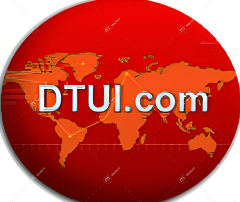Introduction to the cultural diversity recruitment course
The demographic shift has created a younger talent pool that outnumbers the retirement-age baby boomer workforce. Immigration, the dominance of college-educated women, increased religious diversity, and recent laws that protect the historically excluded in the workforce are just a few of the groups contributing to the greater cultural diversity that poses challenges for managers. These are the next generation leaders who will be the most culturally diverse.

DTUI.com
Course Overview
- Pass; No Pass (<78%)
- ?? CRUs
- ?? IACET CEUs
- This DELA 100 training format requires the completion of 10 learning modules.
- An instructor grades your assignments and supports your learning.
- Each learning module requires completing at least one assignment that is submitted for grading.
- Attend virtual office hours with the instructor when you have questions or need additional support.
- Most learning modules include reading assignments, exercises, a short video presentation, and discussion group activities (Sharing and reviewing other learner assignment submissions) to develop cultural diversity practitioner skills.
- A knowledge check quiz is completed at the end of module 5, and a scenario-based quiz at the end of the training requires demonstrating integration and application of the course content to pass.
- Learn about the diversity profession, its pitfalls, and what is needed to succeed.
- Learn about how an organization's culture challenges creating an inclusive and equitable workforce.
- Learn how to persuasively onboard the leadership to your diversity initiative.
- Learn about the crucial role of organizational assessment, the challenges of data collection, and effective ways to meet those challenges.
- Learn about the importance of a database cultural diversity and equity strategic plan and what is needed to develop it.
- Learn strategies to change an organizational culture to increase inclusion and equity.
- Participants will be able to articulate the importance of diversity in the workplace and identify at least three key legal considerations in diversity recruiting.
- Learners will demonstrate the ability to implement at least two new recruitment strategies aimed at increasing workplace diversity.
- Participants will develop a personalized action plan for diversity recruitment in their organization, addressing specific diversity and inclusion goals relevant to their industry.
Technical Needs
- Computer with high-speed internet access
- Access to the online meeting platform (Please try this at least two days before the first lecture/discussion session to manage any technical difficulties beforehand).
- Telephone access (preferably with earphones)
- MS Word (Do not submit files in pdf, please)
Course module details
Course Logistics
Module 1: The Diversity Profession
Module 2: Starting the Diversity Consultation
Module 3 The Inclusion Professional as Organizational Change Agent
Module 4 Organizational Culture
Module 5 Starting the Diversity Consultation
Module 8 Recognizing Readiness for Change
Module 9 How to Sell Your Recommendations
Module 10 Organizational Change Strategies
Kopenhavn
This course provides participants with a framework for transforming an organization into an engaged, productive, and inclusive workforce
Why students love this course
Still Have Any Questions?
Check out the FAQs.
The DELA difference is that our training is designed to develop professional awareness, attitude (inclusive values and beliefs), knowledge, and skills. A comprehensive examination only assesses your knowledge. Each DELA program is designed to develop professional skills rather than cover only the knowledge you need to pass a final exam. Our certification recipients boast about having designed and developed a strategic plan, a diversity training, or a diversity recruitment plan upon completing their program. In that way, the knowledge you is put into practice. Instructors provide the feedback needed to complete the projects successfully. One graduate boasts that she developed a cultural diversity strategic plan by the end of the CDP training, for example. Her organization adopted the plan because she included staff during the design and development phases. A police officer developed cultural diversity training for officers in her department. The product you develop can be put into your professional portfolio along with the credentials that you earn..
>The CDE is designed and developed for individuals serving in cultural diversity leadership roles within an organization. The individual typically reports directly to the head of the organization, such as the CEO or president. The graduate’s range of potential influence within the organization is considerable compared to a diversity manager or someone with diversity and inclusion (D&I) expertise reporting to a middle manager, such as the human resource manager.
Yes, the distance learning format was the first format we offered the programs back in 1998. Now we use a state of the art learning platform called Canvas Instructure. You can begin the first course in each online program as soon as you register. There is also a weekly – strictly voluntarily – live one-hour video conferencing session for the course. It either meets either on a Tuesday or Thursday. You do not have to attend. It there when you want to attend. You can ask questions, meet other participants, and get an overview of the current module being covered in the course.
That is an excellent question. As of August 1, 2020, federal and state guidance on how to reopen live classroom training sessions is insufficient to even guess at start dates. The pandemic has not been arrested and that is likely the best turn of events that will offer that insight. Please check back as often as necessary or sign up to receive our newsletter at the bottom of this page.
In the meantime, online courses have, understandably, become very possible. In addition, we are currently considering a more intensive live, online experience (e.g., fours hour per day over two days for each course). If that is something you are interested in learning more about, please contact us.
Diversity Certification refers to the credentialing of professionals to serve in management or executive level diversity and inclusion leadership roles.
















